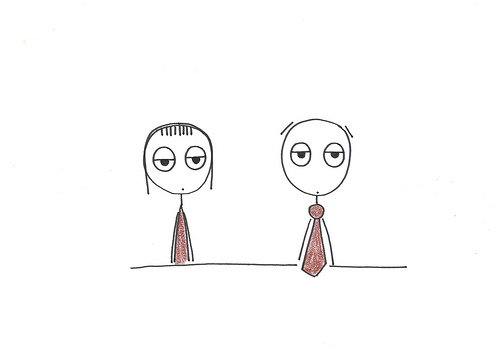
As a therapist, I have the privilege of listening to people’s most private thoughts and emotions. Over the years, I’ve noticed a growing pattern that has emerged in my sessions—many of my clients are grappling with a deep, underlying sense of unhappiness. This isn’t just the usual stress of life, but something more profound: a pervasive feeling of discontent that stretches across demographics, from young adults to retirees. As I’ve explored this trend with my clients, it has become clear that there are several factors contributing to this widespread unhappiness, many of which are rooted in our modern way of life.
In this blog post, I’ll share what I’ve observed in my therapy practice and explore some of the societal factors that seem to be driving this sense of discontent. From the pressures of social media to struggles with identity and a breakdown of community, these underlying issues are contributing to an emotional climate where many feel unfulfilled, disconnected, and lost.
1. The Impact of Social Media and Constant Comparison
One of the most common themes I’ve encountered in therapy is the role of social media in fueling feelings of inadequacy and unhappiness. Many of my clients, particularly younger ones, report feeling overwhelmed by the constant comparisons they make while scrolling through Instagram, TikTok, and other platforms. It’s hard to feel content with your own life when you’re bombarded daily with images of other people’s seemingly perfect bodies, vacations, homes, and achievements.
What’s troubling is that these comparisons often lead to self-worth issues. Clients who, on the surface, appear to have happy, successful lives frequently confess to feeling deeply inadequate because they’re constantly measuring themselves against an impossible standard. They believe that everyone else is thriving while they’re struggling, which intensifies their unhappiness and sense of isolation.
- What I’ve Noticed: The rise of social media has made it harder for people to feel satisfied with themselves or their lives. Even though they intellectually understand that what they see online is curated and filtered, the emotional impact is real, leading to feelings of unworthiness and a loss of genuine connection with their own lives.
2. The Breakdown of Community and a Growing Sense of Isolation
Another significant factor that has come up in my therapy work is the breakdown of community and the resulting loneliness it creates. Many of my clients talk about how disconnected they feel from others, despite living in densely populated areas or being surrounded by people at work or school. The traditional support structures that once helped people feel anchored—tight-knit neighborhoods, extended families, religious institutions, or community organizations—are becoming less common, leaving many feeling adrift.
Without these social safety nets, it’s easy for people to feel isolated and unsupported. They might have hundreds of “friends” online but feel they have no one to turn to when they’re struggling. Loneliness has come up repeatedly in therapy, with clients describing how they miss the sense of belonging they’ve either lost or never had. This sense of isolation can be emotionally devastating and contributes to the underlying unhappiness many people are experiencing.
- What I’ve Noticed: Clients often express a deep longing for real, face-to-face connection. They miss the feeling of belonging to a community or tribe, and this lack of genuine connection leaves them feeling unsupported and alone in their struggles, exacerbating their unhappiness.
3. Struggles with Identity in a World of Infinite Choices
In my therapy practice, I’ve also seen how the modern world’s emphasis on individuality and choice can be overwhelming. While having options is important, many of my clients struggle with the pressure to define themselves in a world that offers infinite possibilities. From career paths to gender identity, sexual orientation, and lifestyle choices, people are expected to make clear decisions about who they are and what they want. The freedom to choose can feel empowering, but for many, it creates a sense of paralysis and self-doubt.
Clients often express anxiety over whether they’re making the “right” choices—whether it’s choosing a career that reflects their true passions, deciding where to live, or navigating their relationships. This identity confusion can leave people feeling directionless and disconnected from themselves. Instead of feeling liberated by the ability to create their own paths, many feel lost in a sea of possibilities, unsure of who they are or where they belong.
- What I’ve Noticed: The freedom to shape one’s identity has led to significant anxiety for many clients. They worry about whether they’re living authentically or making the best decisions, which leaves them feeling unmoored and unfulfilled.
4. The Burden of Perfectionism and Success Pressure
Another theme that frequently emerges in therapy is the burden of perfectionism and the relentless pressure to succeed. In today’s world, many people feel an overwhelming need to perform at their highest level in every area of life—career, relationships, health, and personal development. This drive for perfection often leads to burnout, anxiety, and feelings of failure.
Clients often speak about the invisible pressure they feel to achieve. They worry about being left behind, not meeting societal expectations, or failing to live up to the standards set by their peers, family, or even themselves. This relentless pursuit of success leaves little room for self-compassion or enjoyment of life’s simple pleasures, further deepening feelings of dissatisfaction and unhappiness.
- What I’ve Noticed: Many clients feel weighed down by the need to be perfect and constantly productive. They often feel like they’re falling short, even when they’re objectively successful, leading to a pervasive sense of unworthiness and burnout.
5. Chronic Stress and a Lack of Emotional Resilience
One of the most concerning patterns I’ve observed in my practice is the prevalence of chronic stress. Whether it’s financial insecurity, work pressures, or global issues like climate change and political instability, many people feel constantly stressed and anxious about their futures. This chronic stress can erode emotional resilience, making it harder for people to cope with setbacks and challenges.
In therapy, clients often talk about how they feel emotionally drained, as though they’re constantly on edge and struggling to keep up with the demands of daily life. This ongoing stress leaves little room for joy or fulfillment, as people feel they’re constantly in survival mode. Over time, chronic stress can lead to deeper emotional problems, including depression and anxiety, further contributing to the growing unhappiness I’m seeing in the world.
- What I’ve Noticed: Many clients struggle to manage chronic stress, which erodes their ability to bounce back from challenges. This leaves them feeling worn out and unable to experience true contentment or happiness.
6. Disconnection from Meaning and Purpose
At the heart of many of the issues my clients face is a disconnection from meaning and purpose. While our modern world offers countless opportunities for entertainment and distraction, many people feel a deep sense of emptiness. They might be busy and successful, but they often express that something is missing—a sense of deeper purpose or fulfillment.
Clients frequently tell me that they feel disconnected from what truly matters, whether that’s their values, their passions, or their sense of purpose. This lack of meaning often leaves them feeling like they’re just going through the motions, living a life that feels empty despite its outward success. Finding and connecting with a sense of purpose can be a powerful antidote to this pervasive unhappiness, but it requires deep reflection and self-discovery.
- What I’ve Noticed: Many clients are searching for meaning beyond their daily routines. They crave a sense of purpose, and without it, they feel unfulfilled and disconnected, which is a major source of their unhappiness.
Conclusion: A Growing Emotional Disconnect in the Modern World
In my therapy work, I’ve witnessed firsthand the growing unhappiness that seems to permeate modern life. Whether it’s the influence of social media, the breakdown of community, or struggles with identity and purpose, many people are grappling with feelings of inadequacy, loneliness, and discontent. This unhappiness isn’t always outwardly visible, but it’s there, simmering beneath the surface, as people struggle to find connection, meaning, and fulfillment.
Addressing this underlying unhappiness requires a collective effort to rethink how we live, interact, and connect with each other. It’s about fostering genuine relationships, reducing the pressures of perfectionism, and rediscovering a sense of purpose that goes beyond material success. While these issues may seem widespread, there is hope: by raising awareness and encouraging deeper reflection, we can help each other find a path to greater happiness and fulfillment in an increasingly complex world.




